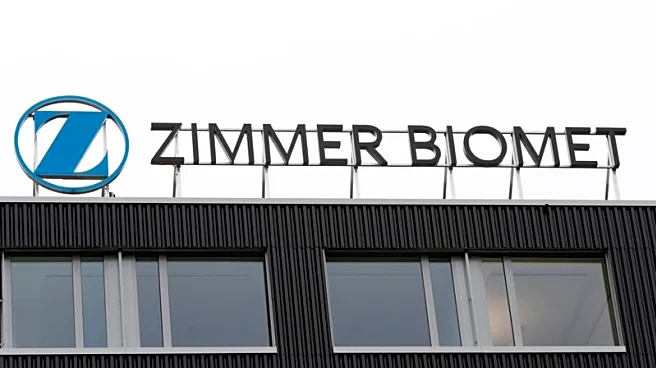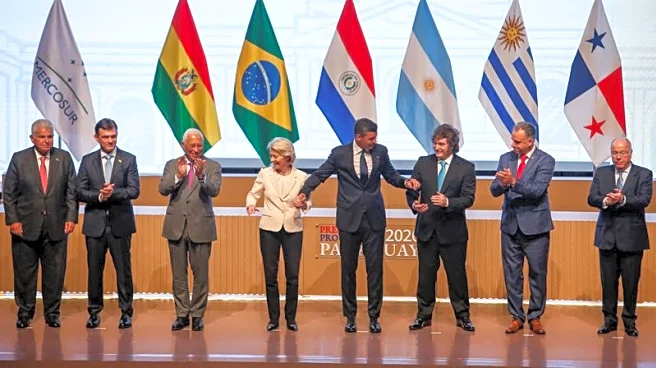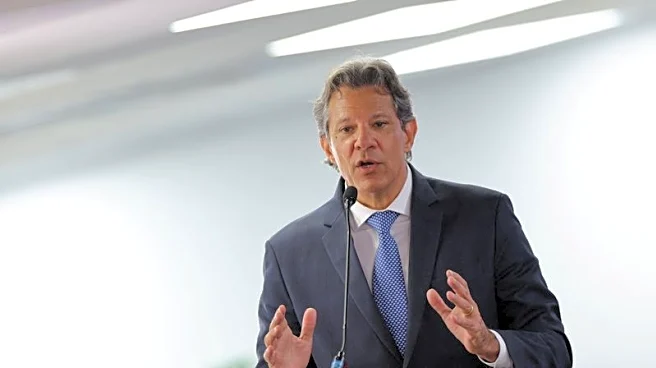What's Happening?
Eli Lilly's CEO, Dave Ricks, has criticized the UK's drug pricing regime, labeling it as the worst in Europe. The UK's strict pricing policies, which allow it to pay less for drugs than other developed countries, have led to significant investment pullbacks from pharmaceutical companies. Ricks warned that unless the UK changes its pricing and rebate schemes, it risks missing out on new drug rollouts and investments. This criticism comes amid President Trump's push for U.S. drug prices to be reduced to levels comparable to other countries. Pharmaceutical companies are urging the UK government to renegotiate the voluntary scheme for branded medicines pricing, access, and growth, which aims to control NHS costs.
Why It's Important?
The tension between pharmaceutical companies and the UK government over drug pricing has broader implications for global drug markets and investment strategies. Eli Lilly's comments highlight the challenges faced by pharmaceutical companies in balancing pricing strategies across different markets. President Trump's efforts to lower U.S. drug prices could lead to significant changes in the pharmaceutical industry, affecting pricing, availability, and investment decisions. The industry's response to these pressures will be crucial in shaping future drug pricing policies and international market dynamics.
What's Next?
Pharmaceutical companies are likely to continue lobbying for changes in the UK's pricing policies, while also navigating the U.S. government's push for lower prices. The outcome of these negotiations could impact drug availability and investment in both regions. Additionally, President Trump's deadline for pharmaceutical companies to make binding commitments to lower U.S. drug prices is approaching, which could lead to further industry shifts.









